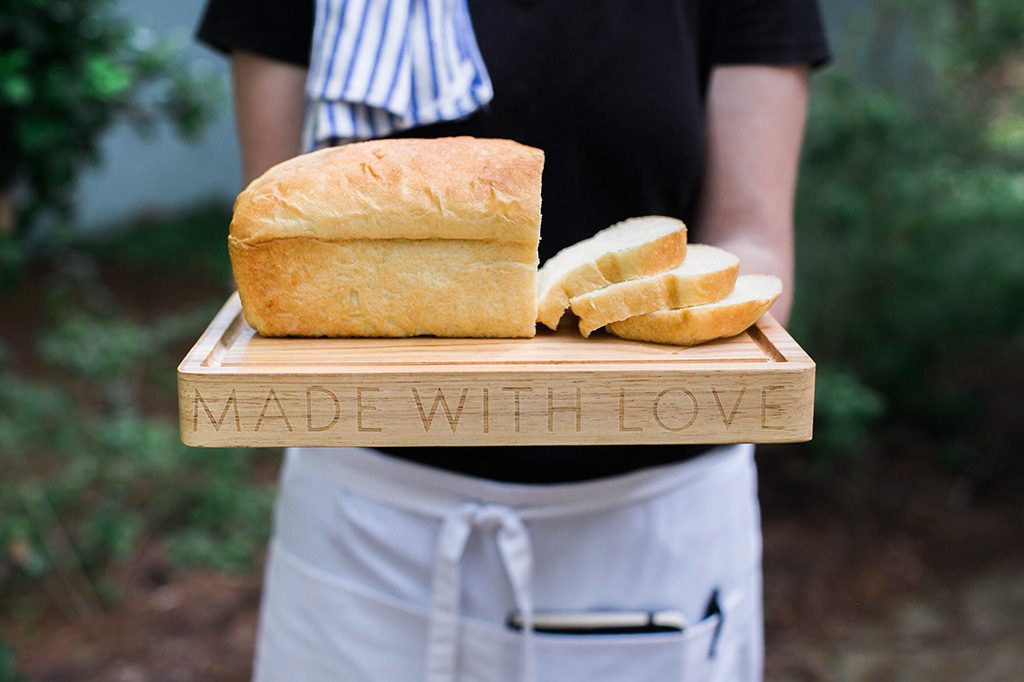Graduate course inspires alumni to launch mission-driven businesses
Mission-driven businesses focus on the triple bottom line: people, planet and profit. UNC-Chapel Hill is making its own contributions to social entrepreneurship, and one thriving example is taking place within a graduate-level School of Social Work class.
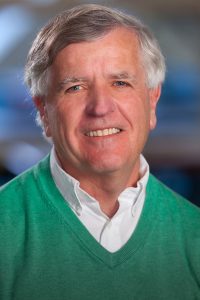
The interdisciplinary Sustainability and Social Entrepreneurship course is inspiring several student-led social ventures. According to social work professor Gary Nelson, Ph.D., the initial focus in 2008 was on sustainable development. As the idea of social entrepreneurship gained traction on campus and across the country, the course morphed to also include studies of social ventures and social entrepreneurship skill development.
“Our University recognizes a need to prepare and train graduate students for a wide range of productive work and careers,” said Steve Matson, dean of The Graduate School. “This course is another creative, effective way to prepare graduate students for their life’s work.”
Nelson said most students take the course because they sense that problems need to be addressed differently. However, as they come up with an idea and work on a business plan for it, they usually surprise themselves.
“It’s fun to watch them realize ‘This could actually work,’ ” Nelson said.
He emphasized the importance of interdisciplinary efforts in social entrepreneurship, a movement that discourages “silos” in businesses and other organizations. Effective solutions stem from strategic partnerships between disciplines such as business, public health, social work and communication, he added.
Apart from the business skills developed in the class, Nelson said the most important thing students learn is to entertain unconventional thinking about how to approach problem solving, to be curious and to challenge tradition.
“Social entrepreneurship is the challenge of creating a new way of doing business that is much more impactful and far-reaching that what has traditionally been done,” Nelson said.
Food FWD
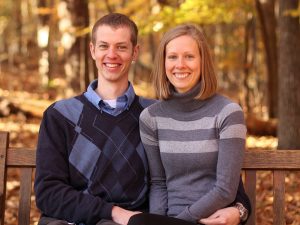
Sarah Marsh took Nelson’s course in 2011, and the experience planted the seed in her mind that she could someday start her own business.
While Sarah was working toward her master of social work degree, her husband, Noah, was managing a local restaurant. To control food costs, he began to separate food waste from kitchen waste. The restaurant ended up with bins full of food waste that staff was taking to dumpsters. Noah called composting companies that said they would love to have it, but couldn’t pick it up. Sarah and Noah started to toy with the idea of starting their own business, which could eventually be a venue to hire people with employment barriers.
“I think everybody wants to have a career that is impactful and meaningful,” Sarah said. “We saw a problem and an opportunity and decided to go for it.”
Sarah and Noah started Food FWD, a food waste diversion company that services the North Carolina Triangle area. Food FWD was incorporated in 2013 and began operations in 2014. Currently, the customer base includes local restaurants, several schools, grocery stores and corporate cafeterias. They distribute bins for separating food waste and pick it up on a weekly basis. Food FWD has two collection vehicles, and collects 12 tons of food waste per week from just over 80 customers. Sarah and Noah plan to hire their first employee in early 2017.
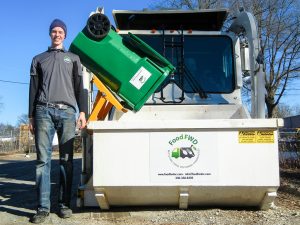
Making sustainable practices more accessible is one of the core values of Food FWD. For this reason, Sarah and Noah decided to also sell compostable serviceware, which has become half of their business’ gross sales. This phase of the business was developed in part by Carl Baumann, a retired executive from the private sector who works with SCORE (a free small business consulting organization) and also helps mentor students in the Sustainability and Social Entrepreneurship class.
Sarah met Baumann through the class, and he has worked closely with her and Noah throughout the business planning, inception and development. Sarah emphasized the importance of the business planning process, stating that she would not have felt comfortable taking the leap to start a business without it – and also noting that Food FWD secured funding largely in part because it had a very detailed business plan to present to potential lenders.
Made With Love Bakery
The idea of opening a bakery that offers transitional employment for homeless individuals (or those at risk of homelessness) came to Allison Norman during her senior year at UNC-Chapel Hill.
“The most I’d ever baked was boxed brownies,” Norman said. “I was probably the most unqualified person – for baking and for business. But it was one of those dreams that lights your heart on fire.”
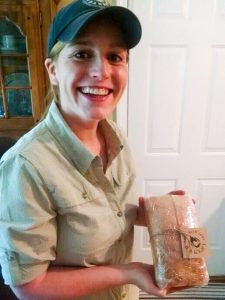
She went on to pursue her master of social work degree at Carolina, using every project and paper as a catalyst to develop this idea for a social venture – from financial evaluation projects to research papers about homelessness. She developed the business plan for the bakery as a final project in the Sustainability and Social Entrepreneurship course.
Norman said she learned fiscal responsibility in the course and the importance of being a good steward of money that is given or made. A social entrepreneur, she said, must commit to the mission, while also being financially aware of the long-term repercussions of every decision.
Over the past several years, Norman taught herself to bake, and “made a lot of friends” passing out samples to classmates for taste testing. The bakery currently operates out of Norman’s home kitchen in Chapel Hill, which was inspected and certified by the N.C. Department of Agriculture.
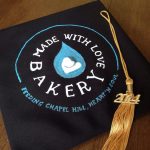
Norman chose to operate out of the home kitchen to save costs that could be put toward the transitional employment training program, which is the core of the business’s mission. Right now, Norman’s sole focus is on fundraising and developing an effective training program for the employees she plans to hire as the business grows. She wants to be sure that Made With Love establishes a program that will be self-supporting, and most importantly, will last. “We want to be able to continue to exist and to continue to make a difference,” she said.
Made With Love Bakery officially launched in August 2016 and fulfills online orders for individuals, events and the new The Meantime Coffee Co. – another social venture and new student-run coffee shop in the UNC Campus Y. Norman and a fellow Carolina graduate are currently fulfilling orders. Made With Love plans to hire employees and offer transitional employment opportunities once the training program is fully developed. In the next few years, Norman would like to open a commercial kitchen and sell to restaurants and grocery stores, and, eventually, open a storefront for the bakery.
To Norman, social entrepreneurship means using the lessons learned in the business world to implement more sustainable social programs. “We need to use every tool in our box to help solve the many issues in this world,” she said. “When you don’t have many resources, you learn to be really effective with what you do have. Being business-minded provides more sustainable funding in ways that traditional nonprofits don’t have.”
Norman said she has also learned the value of networking and asking questions. Her peers and friends were always willing to help with areas in which she felt less experienced in early days.
“Made With Love means everything to me. It’s my whole heart.”

